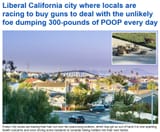The first mission came faster than I expected. I barely had time to collapse on my couch before the radio under my kitchen sink crackled to life. It wasn’t supposed to be plugged in, wasn’t supposed to work, but somehow the mechanic had found a way. The voice that came through was warped, metallic, layered with static, but clear enough to freeze my blood.
“Target: Sector Seven Sewage Junction. Midnight. The Flush must strike.”
The words vibrated in my gut, a pressure building like something alive inside me. I knew it wasn’t coincidence. The enemy had chosen their battlefield—our own waste systems, the veins of the city. If they controlled the pipes, they controlled everything.
I met the others at the edge of town, under a dead streetlight. The teenager had a backpack stuffed with spray paint and cheap fireworks. The woman carried nothing but a crowbar. The mechanic hauled a duffel bag that clanked like steel teeth. We didn’t talk much. The mission was simple: breach the junction, plant our signal, let them know resistance had arrived.
But when we slipped into the tunnels, the air was already wrong. It wasn’t just the rot. It was humming, a low, unnatural vibration echoing through the sludge-coated walls. We weren’t the first to arrive.
And then we saw it—stenciled in bright red paint on the dripping concrete: a crude sigil of Putin’s face, smiling, crowned by a toilet bowl halo. The message was clear. He had claimed this territory before we even knew the battle was here.
The teenager whispered, “So what now?”
I tightened my fists, gut gurgling like a storm. “We overwrite it. We make them taste our presence.”
The first mission of The Flush had become something bigger. It was no longer just sabotage. It was a declaration.
